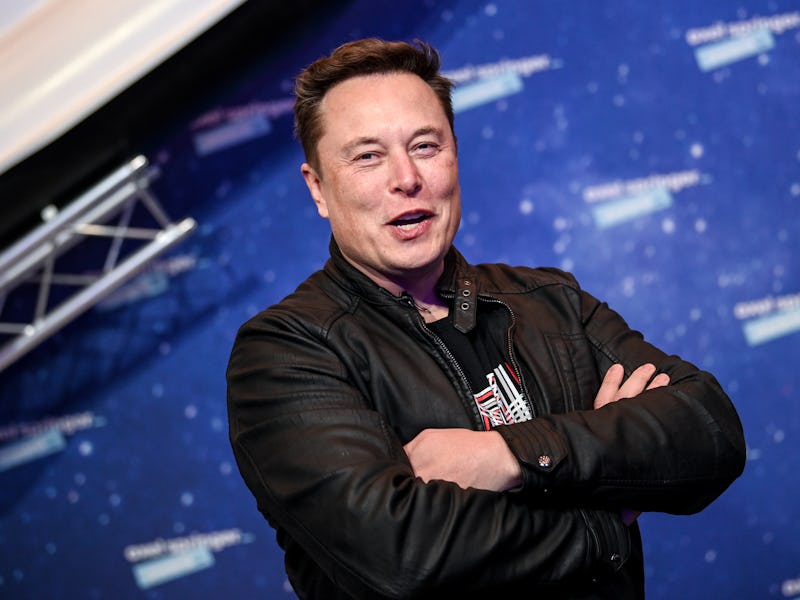SpaceX Mars city: Elon Musk has a bold message for doubters
Mars or bust.

Elon Musk's plan to build a city on Mars is controversial, to say the least. Filmmaker Werner Herzog recently compared the idea to a Biblical plague. But the SpaceX CEO is not backing down.
At a Tuesday evening award ceremony in Berlin, the CEO was asked in an on-stage interview whether he would like to be buried on Mars. Musk, who has made the claim a number of times over the years, reiterated Tuesday he wants to die on Mars — "just not on impact."
SUBSCRIBE TO MUSK READS+, A PREMIUM NEWSLETTER THAT COVERS THE WORLDS OF ELON MUSK, SPACEX, TESLA, AND EVERYTHING BETWEEN.
"Listen, we're all gonna die someday," Musk said. "So if you're gonna die someday, I'm like, okay, do I want to be buried on Mars or Earth? I'm like, Mars sounds cool! Born on Earth, die on Mars."
If Musk is willing to spend his last days in his own planned Martian colony it would serve as a strong rebuke to his many critics. In an Inverse interview last month, German director Werner Herzog dismissed the "technological utopia" as an "obscenity," arguing that humanity should "not be like the locusts" and leave Earth after using up its resources for another planet to exploit.
Musk has sketched out his grand vision in various interviews and public appearances over the years. It is the driving force behind the under-development Starship, a fully-reusable ship which will be able to land on Mars, refuel using the planet's resources, and either fly home or venture out further. If successful, SpaceX would establish a million-strong city on the Red Planet by 2050 — potentially the first step toward fully terraforming the planet.
During Tuesday's event, at which Musk received the Axel Springer award given to "outstanding personalities who are innovative in an extraordinary way," Musk said he was "fairly confident" the first humans would land on Mars in about six years' time.
SpaceX's Starship.
The point of the city, he explained, was to be a "life insurance" policy for "life as a whole" in case of catastrophe here on Earth.
The city would also offer a future that is "inspiring and exciting," Musk claimed.
"There's gonna be people out there," Musk said. "They're gonna believe we can have a base on the Moon. We're gonna have a city on Mars, maybe go further, moons of Jupiter and everything. I think that's a very exciting future. I think most people do."
But while critics like Herzog and Chinese billionaire Jack Ma argue that humans should focus on Earth rather than Mars, Musk suggested Tuesday he takes a less Copernican view of things.
"Tesla is about trying to make sure things are good for the future on Earth," Musk said. "And then SpaceX is about a good future beyond Earth."
The Inverse analysis — By Musk's own estimates, a Mars colonization would be both expensive and dangerous. But despite being the second-richest person in the world with the ability to live a very comfortable life on Earth, Musk seems committed to a dream of dying on Mars.
Musk was originally convinced to turn his sights on Mars by Robert Zubrin, president of the Mars Society. But in 2016 he suggested the ultimate ambition to be laid to rest on the Red Planet would need to wait. Asked then if he would be first to go to Mars, Musk said he'd "have to have a really good succession plan because the likelihood of death is very high." Perhaps only so keen, then.
This article was originally published on